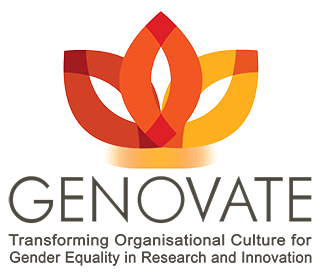 The GENOVATE Community is a platform which enables GENOVATE partners to share institutional information and case studies, and facilitates the coordination of a buddy system for bench learning.
The GENOVATE Community is a platform which enables GENOVATE partners to share institutional information and case studies, and facilitates the coordination of a buddy system for bench learning.
The GENOVATE Community consist of seven GENOVATE partner institutions; the GENOVATE International Advisory Board; key strategic collaborators and stakeholders and the general public. It is a mechanism designed to facilitate meaningful knowledge exchange across the community at local, national and international levels within each of the partner institutions’ countries, across Europe and globally.

For the XXX edition of Futuro Remoto, the team of GENOVATE@UNINA has involved a large audience of visitors on a reflection on the gender dimension in the world of research and innovation.
The interactive exhibition, held on 7-9 October, was based on information on GENOVATE's actions and the presentation of the Gender Observatory on University and Research at the University of Naples Federico II: the first shown through three roll-up panels, the second inviting the audience to associate comic book baloons in which male and female characters had fallen in work situations or discussed about their respective careers.

At this 9th meeting we discussed the GENOVATE achievements and the advisory board members presented how GENOVATE project results will be utilized in their working places and organisations after the end of the project. The meeting also reflected on the organization of the project and processes and what we can learn from GENOVATE for future projects.
The meeting was concluded with short information about the final GENOVATE conference that will take place on November 2-3, 2016 at Thon Hotel EU in Brussels. Two of LTU’s advisory board members will join the Brussels conference: Cathrine Norberg, Dean of Faculty of Humanities and Social Sciences and Anders Lundkvist, CEO of Centre for Distance-spanning Technology. Welcome to meet the LTU team in the following slot:
Promoting gender-aware and sustainable research and innovation systems
- outcome, challenges and benefits
Day 2: Thursday, November 3, 2016 (10.15-11.00)
Room: Netherlands 3
Speakers: Prof. Ylva Fältholm & Paula Wennberg, LTU Sweden
Chair: Ellen Pugh, Equality Challenge Unit, UK
The whole conference programme is available here http://www.genovate.eu/dissemination/genovate-international-conference/programme/
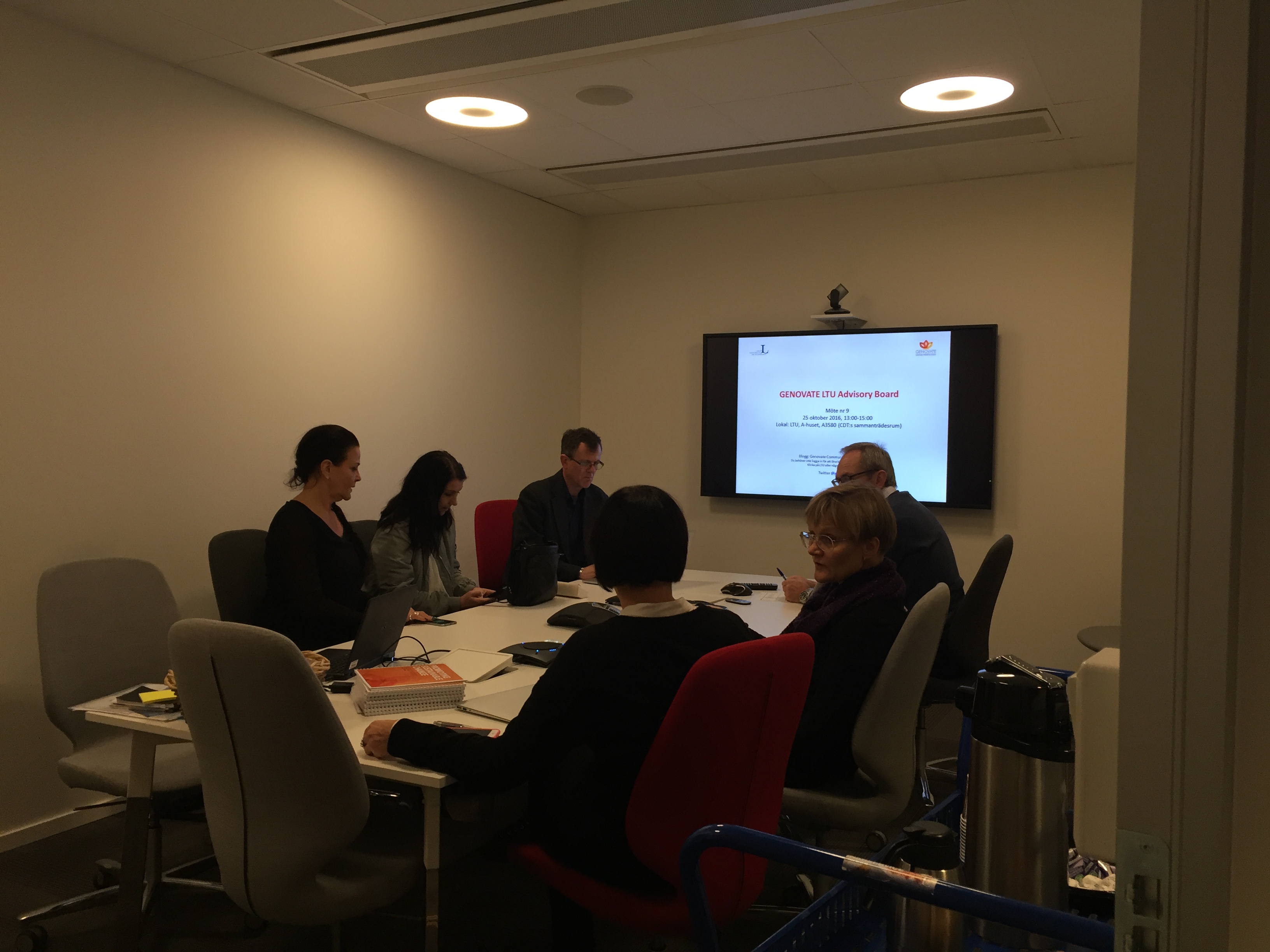
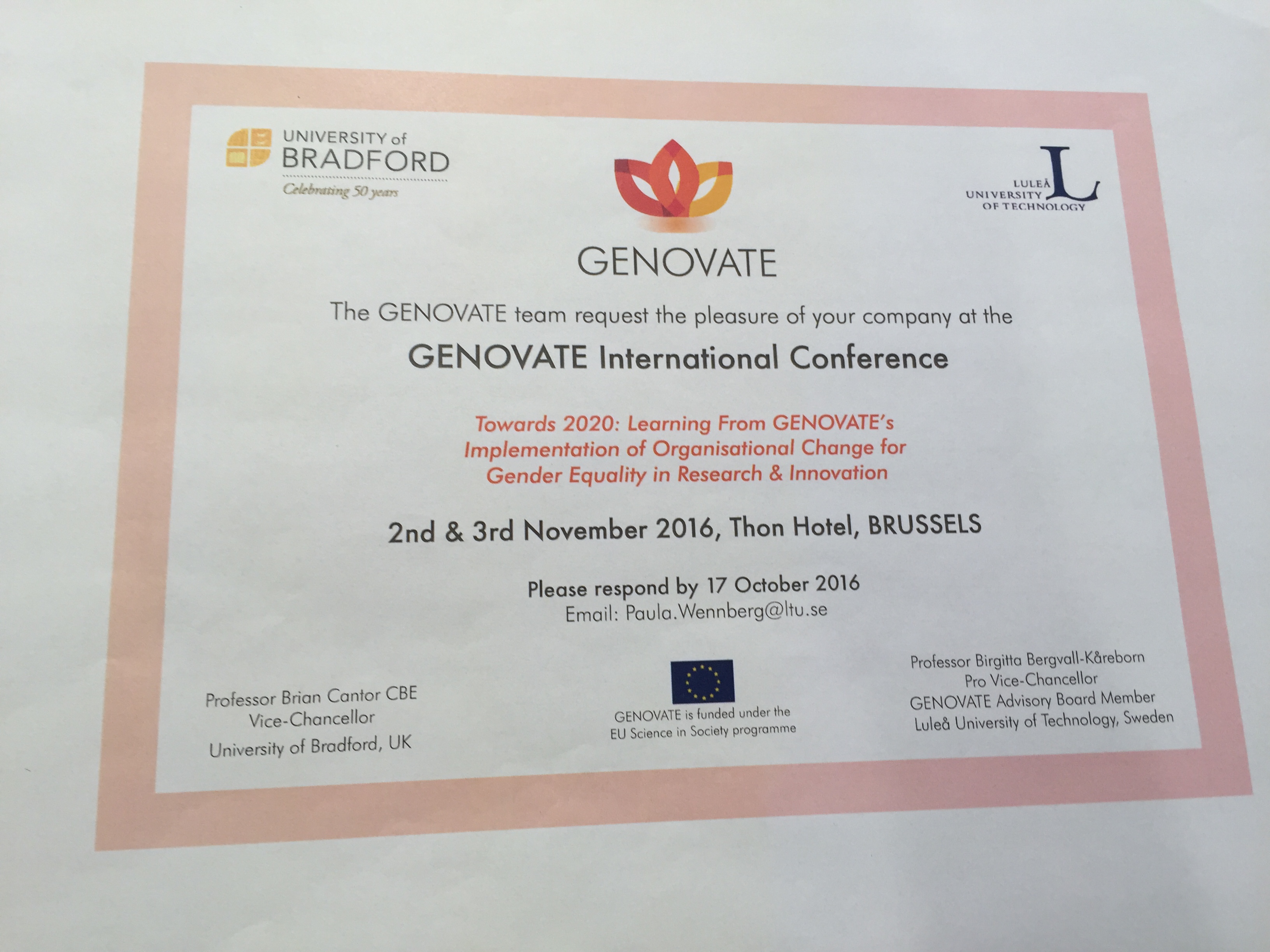

In order to ensure the sustainability of GENOVATE project at the Università degli Studi di Napoli Federico II, the Gender Observatory on University and Research has been established in our institution.
The Gender Observatory aims to promote:
The Gender Observatory consists of four research areas:

Sharing good practices and showcasing successful equality work carried out in Northern Sweden 2016 will take place on the Regional Equality Day on September 14, 2016 in Luleå. During the day the winner of the award for the best equality work will be presented. Among the nominees is Paula Wennberg, Luleå University of Technology. Read more http://www.ltu.se/ltu/media/Med-jamstalldheten-i-fokus-1.156852?l=en

Workshop on how to integrate a gender perspective in research projects, programs and funding applications at the FESTA EU FP7 project conference on June 8, 2016 at Uppsala University, Sweden. Workshop facilitators: Ylva Fältholm and Paula Wennberg.
This conference with 50 participants from Swedish universities and funding agencies was organised by FESTA in collaboration with four EU FP7 sister projects: GENOVATE, GEDII, GenPORT and GenderTime.
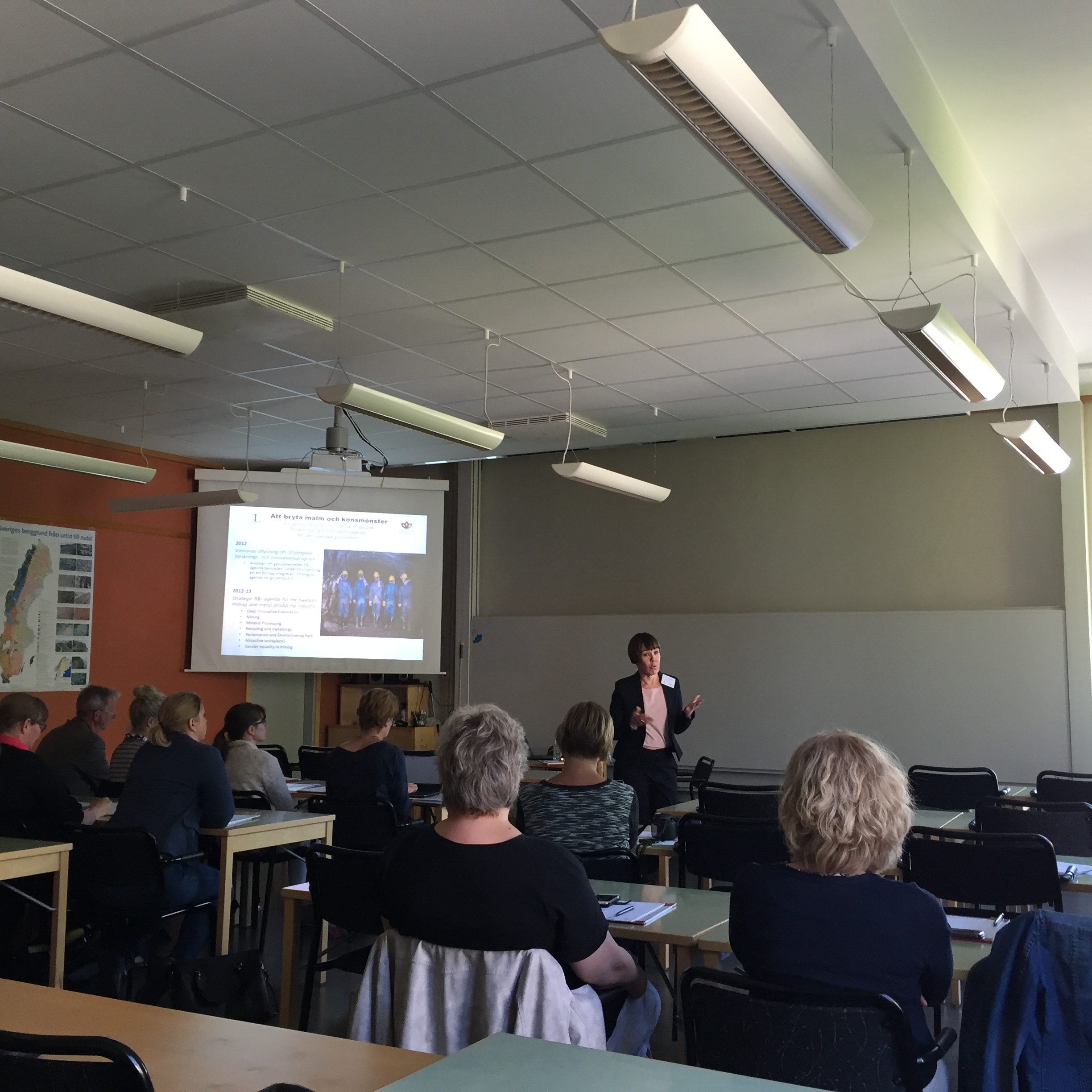
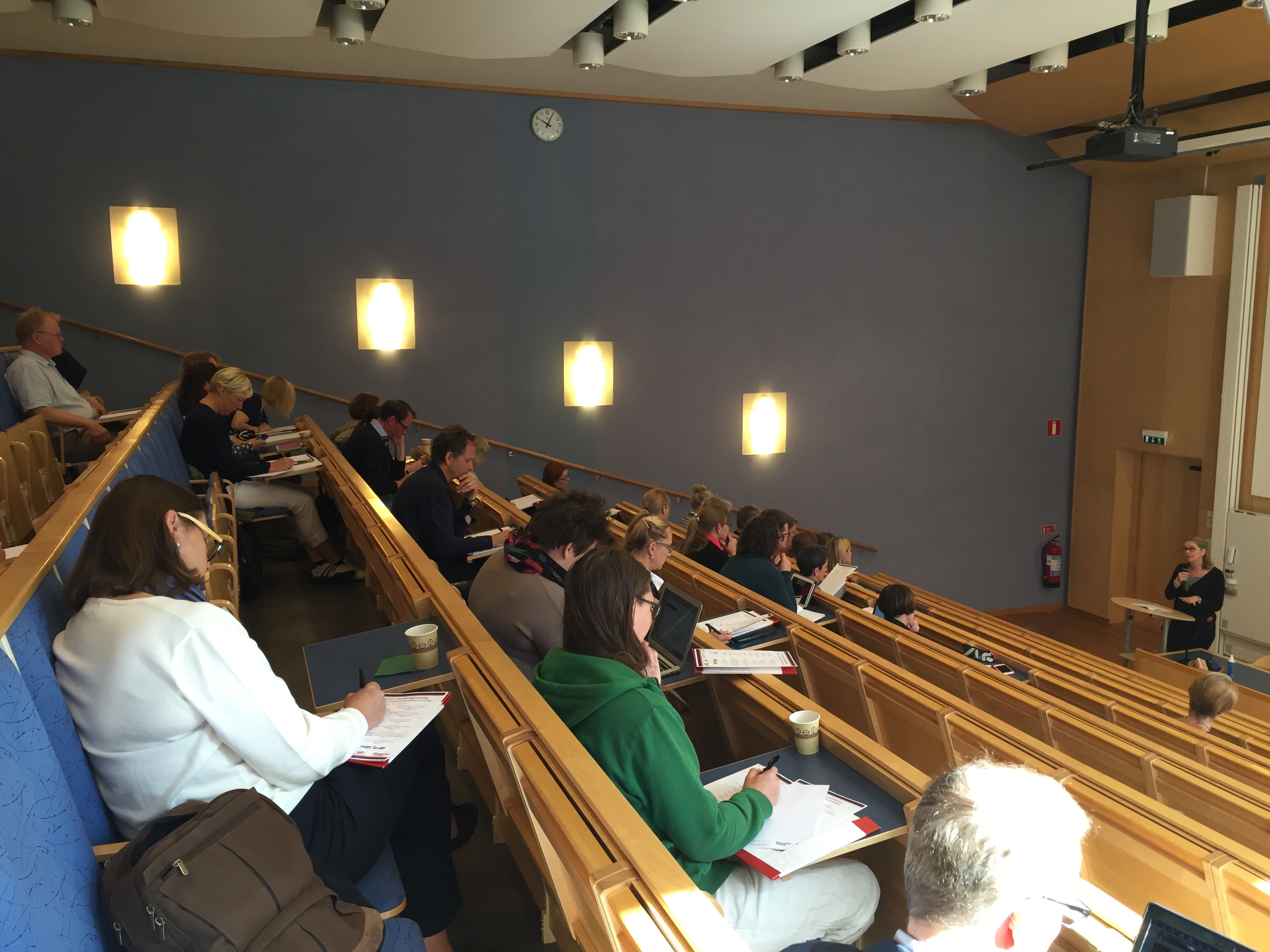
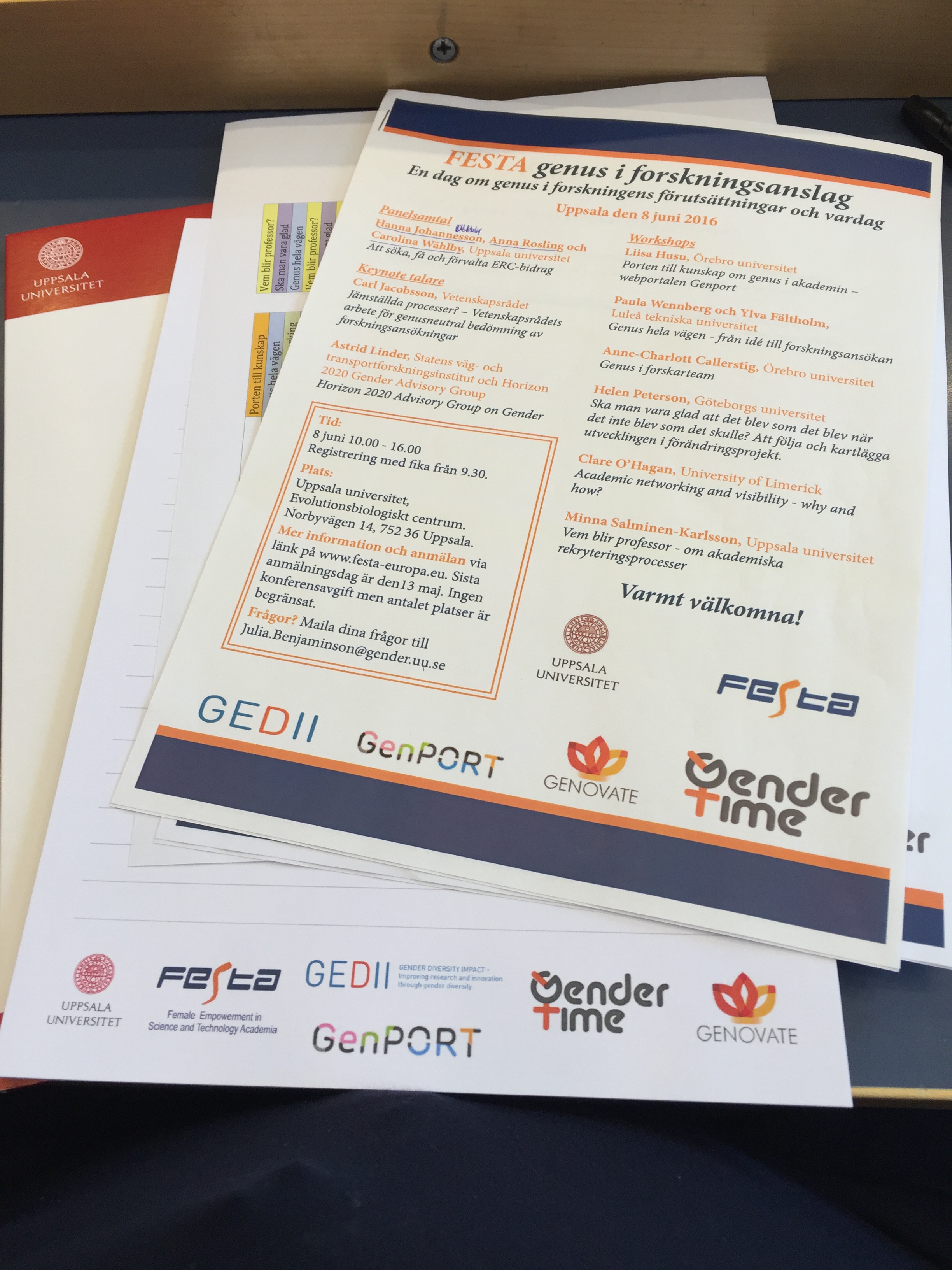

UNINA team has agreed with the UNINA FedOAPRESS, the institutional Publishing House of UNINA, to create a book series on "Gender, Science and Society", with the UNINA Gender Budget being the first volume of the series.
This book series aims to construct bridges among different perspectives on issues related to women’s participation in science and in academic professions and organizations in order to articulate a comprehensive treatment of similarities, differences and interactions through and within disciplines and research domains, while linking specific institutional mechanisms and dynamics to broader societal ones.
Three perspectives at least seem to be relevant to this aim: research on gendered societal relations; research on the social organization of science and academy; research on the globalization of the productive relationships and resources of science and techno-science.
The book series will host:
a) Research and theoretical works integrating the gender dimension in the study of systems of scientific knowledge production, transmission, transfer and communication, bridging women’s and gender studies with science, society and technology studies.
b) Studies about research evaluation systems and their differential impact on gender equity; studies that explore exploring criteria and procedures giving value to different dimensions of research quality and excellence; studies that value accounting for the contribution of diversity to in scientific knowledge production and development.
c) Quantitative analyses about women’s participation in science and academy; horizontal and vertical gendered segregation across and within disciplines; differential career paths and opportunities; proposals of gender-sensitive statistical tools and indicators systems; scientific and academic organizations’ gender budgets.
d) Qualitative inquiries into attitudes and behaviours of scientists and researchers related to gender climate and gendered practices in the labs and in research teams; related to the perception of the gender issue in science; related to the perceived relevance of the gender dimension in the production of scientific knowledge, in teaching practices, in knowledge dissemination, communication and use.
e) Research studies about career paths and their gendered structure and about practices aimed at changing structural mechanisms and implicit stereotypes playing against the underrepresented gender.
Powered by Multicategories for Joomla!2.5